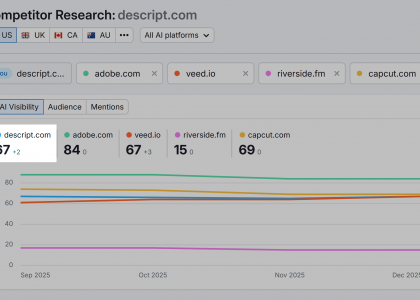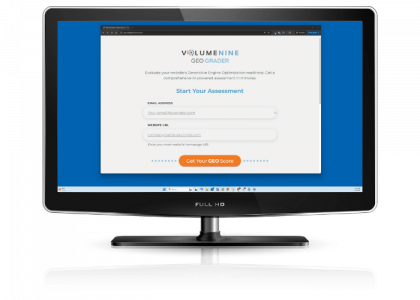If you’ve ever done media outreach, chances are you’ve crossed paths with HARO (Help a Reporter Out).
For over a decade, it was the go-to platform for securing media placements and backlinks.
But in early 2024, HARO officially shut its doors.
What now?
Fortunately, HARO’s closure doesn’t mean your outreach efforts have to take a hit.
There are several excellent HARO alternatives ready to help you land high-quality backlinks and media coverage.
Over the past five years, journalist outreach platforms have helped my team secure 22,000 placements for our clients.
All without paying for a single backlink.
Yes, you read that correctly.
While the majority of these 22,000+ wins were sourced from HARO and Featured, niche newsletters like Help A B2B Writer and ProfNet also helped us earn backlinks that boosted our clients’ authority.
Below, you’ll learn seven HARO alternatives, along with pros, cons, and pricing, to help you score authority-building backlinks.
Ready to dive in? Let’s go!
HARO Alternatives at a Glance
Platform
Standout Feature
Pricing
Connectively
Web application with advanced features
Free plan available; paid plans cost $19–$149 per month
ProfNet
Less competition, higher quality opportunities
Contact for pricing
Source of Sources
Identical format to HARO
Free
Featured
Highest conversion rate, fastest turnaround
Free plan available; paid plans start at $39.80–$79.20 per month, per seat
Help a B2B Writer
High-quality marketing opportunities
Free
Qwoted
Access to top-tier media outlets
Free plan available; paid plans start at $99 per month
Direct Contributions
Direct access to journalists
Free (time investment required)
1. Connectively: HARO’s Official Successor
When HARO shut down, Cision didn’t leave us hanging.
They launched Connectively, a web-based platform designed to pick up where HARO left off.
But is it a worthy successor?
Let’s find out.
How Connectively Compares to HARO
Connectively tries to improve on HARO’s foundation:
It’s a web app, not an email newsletter
It has a paywall to reduce spam
You can filter and bookmark media and link-building opportunities
You can set keyword alerts
Sounds great, right?
Well, not so fast.
For starters, there might be less competition due to the pay-per-pitch model weeding out all of the “contributors” who spammed the old free format of HARO.
But the web application has technical issues that can result in pitches being rendered useless, which lowers your outreach conversion rate.
Pros
Advanced UI: Filter, bookmark, and set keyword alerts for opportunities
Improved user experience: Remember how you used to have to scroll through every opportunity for days, never knowing whether it was worth pursuing? The web app is more user-friendly than HARO’s clunky email format.
Quality control: The paywall should (in theory) reduce spam and increase pitch quality
Familiar ground: Many HARO publishers made the switch, maintaining some continuity
Cons
Rocky start: The transition from HARO wasn’t smooth, causing some publications to drop off, leaving Connectively with lower quality and quantity
Technical hiccups: Some journalists report receiving blank pitches due to tech errors
Lower conversion rates: Our data shows a significant drop in success rates compared to HARO
At Jolly SEO, our HARO pitches had a 1:12 win ratio. With Connectively, it dropped to 1:50. Ouch!
Pricing
Connectively offers a free plan, which gives you 10 pitches per month.
If you need more than that, these are your options:
$19 per month for 25 pitches
$49 per month for 50 pitches
$149 per month for 150 pitches
You can also buy additional pitches in quantities of 5, 25, or 50.
Connectively pricing works out to about $0.80 per pitch for my team.
Seems cheap, right?
When you factor in the lower conversion rates, the cost per successful placement skyrockets.
Is Connectively Right for You?
If you’re a HARO veteran looking for familiar territory, Connectively might be worth a shot.
But be prepared for higher costs and lower success rates.
Our advice? Keep an eye on Connectively as they iron out the kinks. But don’t put all your eggs in this basket just yet.
Further reading: We Analyzed 12 Million Outreach Emails—Here’s What We Learned
2. ProfNet: Best for High-Quality Wins
ProfNet has provided marketers and business owners with PR and backlink opportunities since 1992.
But does age equal quality? Let’s find out.
How ProfNet Compares to HARO
ProfNet takes a different approach:
It’s behind a paywall, unlike HARO’s free model
It has fewer users, leading to less competition
The opportunities are among the highest in quality outside of Connectively
Pros
Exclusive opportunities: Access to domains not available on other platforms
Better odds: With fewer users, your chances of getting picked are higher. Only about 14,000 PR pros use ProfNet (compared to HARO’s 1 million+).
Quality over quantity: Fewer opportunities, but they’re often with higher-tier publications
Conversion king: Our data shows ProfNet matches or beats most alternatives in placement quality
Based on our last 1,000 backlinks, ProfNet’s quality rivals Source of Sources and is only slightly lower than Connectively. But, Profnet’s conversion ratio beats nearly every other platform. (Keep in mind our outreach required a minimum domain rating of 50+ and organic traffic of 1,000+.)
SEO Metrics by Source (minimum DR 50+ and organic traffic of 1,000+.)
Domain Rating
Organic Traffic
HARO
76
870,000
Connectively
78
3,304,000
Profnet
79
1,490,000
SOS / HERO
81
1,570,000
Featured
70
95,000
Help A B2B Writer
73
1,150,000
Direct Contributions
74
400,000
Cons
Old-school format: Still uses the clunky email newsletter format that HARO used in the past
No SEO data: You’ll need to do your own research on domain ratings and backlink policies
Pricey: The annual subscription is expensive
Pricing
Exact pricing isn’t publicly available, so you’ll need to contact ProfNet for a quote.
ProfNet’s annual subscription is in the low thousands. It’s worth the investment if you prioritize high-quality wins and reducing outreach effort.
Is ProfNet Right for You?
If you’re after quality placements and don’t mind investing some cash, ProfNet is a solid choice.
It’s especially good if you:
Have a decent budget for media outreach
Prioritize quality over quantity
Don’t mind doing some extra SEO research
But if you’re on a tight budget or need a high volume of opportunities, you might want to look elsewhere.
Further reading: How to Send Effective Outreach Emails
3. Source of Sources (SoS): Most Familiar to HARO Users
Remember HARO’s founder, Peter Shankman?
Well, he’s back with a vengeance!
Initially launching as HERO (Help Every Reporter Out), he quickly rebranded to Source of Sources (SOS) after some, ahem, legal considerations.
But is this blast from the past worth your time?
I reached out to Peter Shankman to learn more about his vision for Source of Sources:
“I want Source of Sources to be what my original platform was when I ran it: a safe, trusted space connecting journalists and sources, free of spam and off-topic pitches. A utility designed to make everyone’s work easier and help both sides do their jobs better.”
– Peter Shankman, founder of Source of Sources
How Source of Sources Compares to HARO
SoS is basically HARO 2.0:
It uses the exact same email newsletter format
It’s completely free (just like HARO was)
It’s run by the original HARO founder
Pros
Familiar format: If you loved HARO, you’ll feel right at home with SoS
Budget-friendly: No subscription fees or per-pitch costs. You can’t beat free, especially when you’re just starting out.
Founder’s touch: Benefit from Peter Shankman’s years of experience and industry connections.
Cons
No SEO data: Just like HARO, you’ll need to do your own research on domain ratings and backlink policies
Lower conversion rates: Currently, SoS requires more pitches for a successful placement compared to some alternatives
Growing pains: As a new platform, it might take time to attract top-tier publications
Pricing
Source of Sources is completely free.
Is Source of Sources Right for You?
SoS is perfect if you:
Loved HARO and want a similar experience
Need to practice your journalist pitching skills
Don’t mind putting in extra work to research SEO metrics
If you’re just getting started or are already an old pro (and don’t mind putting in a little extra elbow grease for free opportunities), SOS is a great option.
This platform is still growing, but with the original HARO founder at the helm, it could become a major player in media outreach.
4. Featured: Best Conversion Rate and Fastest Turnaround
Want to supercharge your media outreach?
Meet Featured (formerly known as Terkel).
I spoke with Featured’s founder, Brett Farmiloe, about the platform’s core mission:
“Building visibility online is hard. With Featured, you can answer questions to get featured in articles. Just by sharing your knowledge, you can effectively market your business online.”
– Brett Farmiloe, founder and CEO of Featured
This platform is like HARO but supercharged. Is it worth the subscription fee?
Let’s break it down.
How Featured Compares to HARO
Featured takes a different approach:
It’s a paid platform with a sleek interface
It provides basic SEO metrics for each opportunity
Delivers a better conversion ratio
Pros
SEO insights: Paid plans come with Domain Rating (DR) and link type (DoFollow or NoFollow) info. You can also set keyword alerts on the free and paid plans.
High conversion rate: Our data shows Featured has the best conversion ratio of all platforms. And you don’t need to write more than four to five sentences to grab a win.
Stellar support: Brett is a true user’s founder. He’ll personally reply, and his support team is also lightning-fast.
Guaranteed inclusions: Featured’s model ensures your pitches get included more often, even with minimal input
Cons
Subscription model: Pricing is based on active seats, which can get pricey for lower-volume campaigns
Potential PBN concerns: Keep an eye out for private blog network (PBN) issues
Be aware of the potential risks of Featured’s emerging private blog network (PBN). Times have changed since the early 2000s, when that was an advisable link-building strategy.
Today, organically earned backlinks from a diverse range of entities is paramount. Featured has started linking some of its own subsites together, and once Google picks up on this, the value of these backlinks will decrease, and may even go negative.
Overall, Featured is a powerful tool in your media outreach arsenal—just use it responsibly.
Pricing
Featured uses a dynamic billing model based on active seats.
On the free plan, you can submit up to three answers per month.
Paid plans range from $39.80 to $79.20 per month, per seat. If you need more seats, the monthly rate increases.
You get what you pay for in subscribing to Featured—your pitches will convert better than anywhere else.
Our data also shows that Featured has the fastest average turnaround time at just 23 days, compared to the overall average of 35 days across all platforms.
Source
Turnaround Time
HARO
37 days
Connectively
32 days
ProfNet
39 days
SOS/HERO
35 days
Featured
23 days
Help a B2B Writer
44 days
Direct Contributions
50 days
Is Featured Right for You?
Featured is an excellent choice if you:
Want the highest possible conversion rates
Need quick wins to kickstart your campaign
Don’t mind paying for quality opportunities
Further reading: How to Write a Press Release That Gets Results
5. Help A B2B Writer: Best for Marketing Niches
Looking for a hidden gem in the world of media outreach?
Say hello to Help A B2B Writer (HaB2BW).
Purchased by content marketing community Superpath in 2023, this niche platform flies under the radar but packs a punch for marketing, sales, and tech professionals.
To gain deeper insight into the value of Help a B2B Writer, I spoke with Jimmy Daly, the co-founder and CEO of Superpath.
Jimmy shared his perspective on how this platform addresses a critical need in people-first content creation:
“HaB2BW connects writers to subject matter experts—which is likely the single biggest challenge in creating great content. If you aren’t an expert yourself, you need to talk with one, and HaB2BW facilitates that.”
Let’s see if it’s the secret weapon your outreach strategy needs.
How Help A B2B Writer Compares to HARO
HaB2BW takes a focused approach:
Specializes in marketing, sales, and technology opportunities
Provides basic SEO metrics (unlike HARO)
Offers a great conversion rate
Pros
Best conversion ratio: Within its niche, HaB2BW outperforms all other platforms
SEO insights: Unlike other free newsletters, Help A B2B Writer lists basic SEO metrics and backlink policy information (as volunteered by the listing creator)
Free access: No subscription fees or per-pitch costs
Spam-free environment: High-quality opportunities without the clutter
Cons
Limited scope: Only useful if you’re in the marketing, tech, or business niches
Occasional glitches: Being a smaller platform, it sometimes experiences deliverability issues
Lower volume: Fewer opportunities compared to more general platforms
Pricing
Help A B2B Writer is completely free.
Is Help A B2B Writer Right for You?
HaB2BW is perfect if you:
Work in marketing, sales, tech, or related B2B fields
Want high-quality opportunities without spending a dime
Don’t mind a lower volume of opportunities in exchange for better quality and conversion rates
Overall, Help A B2B Writer is a fantastic addition to your media outreach toolkit, especially if you’re in its target industries.
Further reading: Guest Blogging: The Definitive Guide
6. Qwoted: Superb Reputation for Quality
Want to rub shoulders with the crème de la crème of media outlets?
Enter: Qwoted.
This platform has been giving HARO a run for its money for years, specializing in top-tier publications.
But is it worth the hefty price tag? Let’s find out.
How Qwoted Compares to HARO
Qwoted takes a premium approach:
Paid platform with a focus on quality over quantity
Offers access to elite publications
Rigorous vetting process for contributors
Pros
Higher conversion rates: Less spam means better chances of getting picked
Quality control: A strict vetting process, including interviews and IP tracking, ensures high-quality contributions
Prestige factor: Opportunities from top-tier media outlets. You won’t find a better tier of publications out there on the net, save personal networking.
PR-friendly: Great for building relationships with top journalists
With both a high price and individual vetting, Qwoted’s higher barrier to entry means a lot less spam, resulting in better conversion rates for everyone.
Cons
SEO-phobic: While Qwoted is friendly with PR agencies, it’s decidedly standoffish toward SEO agencies
Expensive for teams: Qwoted doesn’t advertise its pricing for team accounts, but online chatter says it’s on the pricier side
Pricing
Qwoted offers a free plan with two pitches per month. Past that, you’ll pay $99 per month for unlimited pitches.
If you need a team account, contact their sales team for a custom quote.
Is Qwoted Right for You?
Qwoted is ideal if you:
Have a substantial PR budget
Prioritize getting quoted in prestigious publications
Have unique, high-level expertise to share
But it might not be the best fit if you:
Are primarily focused on SEO and link-building
Are just starting out in media outreach
Have a limited budget
Qwoted is the caviar of media outreach platforms. If you can afford it and meet their standards, it could elevate your brand to new heights.
Further reading: Blogger Outreach: The Definitive Guide
7. Direct Contributions: High Success Rate, Limited Opportunities
Sometimes, the best way to get media coverage is to take matters into your own hands.
Let’s explore how you can make direct contributions work for you.
How Direct Contributions Compare to HARO
Direct contributions are exactly what they sound like—instead of using a platform to find media opportunities or experts for your articles, you connect with publications and individuals directly.
Reach out to journalists and marketers directly
Build long-term relationships
Enjoy more control over your pitches and topics
Pro tip: Many companies have submission forms on their websites. Try searching Google with phrases like “become a contributor + [your industry]” to find these hidden gems in your niche.
Pros
High success rate: Once you establish a relationship, your chances of being quoted increase
Long-term benefits: Building relationships can lead to ongoing opportunities
Customization: Tailor your pitches to specific publications or writers
Cons
Time-intensive: Requires significant effort to research and reach out to the right people
Slower start: Takes time to build relationships and see results
Limited scale: Harder to reach a large number of opportunities quickly
Pro tip: Use an outreach tool like Apollo.io to streamline your search for PR and journalist leads. Filter by job titles like “journalist” or “reporter,” and industry-specific keywords. Leverage Apollo’s email finder to get direct contact information to increase your chances of successful outreach.
Pricing
Direct contributions are free in terms of platform costs (unless you pay for a premium plan on an outreach tool).
But remember, your time is valuable. Factor in the hours you’ll spend researching and reaching out.
Are Direct Contributions Right for You?
This approach works well if you:
Have a specific niche or expertise
Are willing to invest time in building relationships with journalists, writers, and marketers
Prefer quality over quantity in your media mentions
But it might not be ideal if you:
Need quick results
Don’t have much time for outreach
Are looking for a high volume of backlinks
Direct contributions can be a powerful addition to your media outreach strategy. Just be prepared to play the long game.
Further reading: Backlink Audit: 13 Steps to Optimize Your Backlinks
Choosing the Right HARO Alternative
HARO may be dead, but media outreach isn’t.
With these seven alternatives, you’ve got plenty of options to keep your PR and link-building efforts going strong.
But which one should you choose?
This depends on your:
Budget
Time constraints
Niche
Goals (PR vs. SEO)
Try a mix of free and paid options. Test different platforms to see what works best for your specific needs.
No matter which service you choose, focus on providing value in your pitches. That’s how to earn high-quality backlinks that’ll be Google-algorithm safe for years to come.
Want to learn more about link-building fundamentals, email outreach, and advanced strategies? Read Link Building for SEO: The Definitive Guide.
The post 7 Best HARO Alternatives <br>(Expert Review) appeared first on Backlinko.






